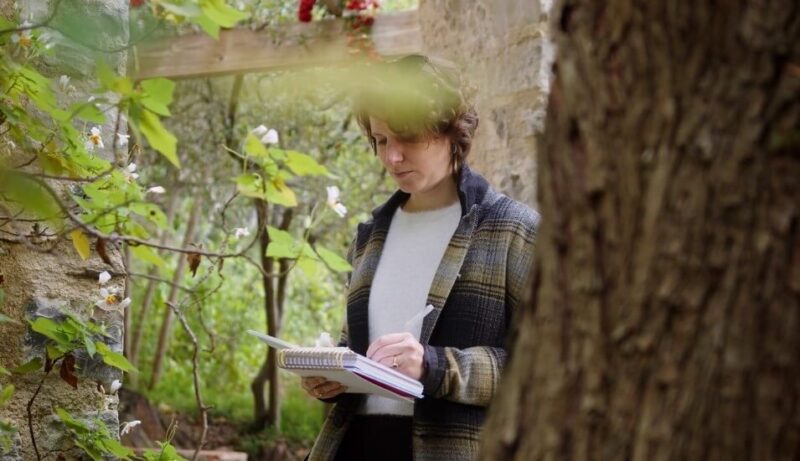Biophilia might sound like a fancy scientific term, but it’s really just about our natural love for life and living things. Today we’ll explore this idea a bit further and see why it’s so important for our well-being.
“Love of life”
Biophilia, in simple terms, means “love of life.” The word comes from Greek roots: “bio” meaning life and “philia” meaning love or affection. The biologist E.O. Wilson made it popular in the 1980s. He suggested that we humans naturally seek connections with nature and other living things.
This idea isn’t just poetic—it’s actually rooted in our biology and psychology. Wilson’s theory suggests that our love for nature is a crucial part of our development and well-being.
You can see this in Environmental Psychology, where our interactions with nature are studied to improve mental health, and in Biophilic Design, which integrates nature into our living spaces.
This idea isn’t just poetic—it’s actually rooted in our biology and psychology. Wilson’s theory suggests that our love for nature is a crucial part of our development and well-being. You can see this when kids are naturally drawn to animals or when adults find peace in gardening.
Where did it all start?
Humans have evolved alongside nature. For thousands of years, our ancestors lived in environments full of plants, animals, and natural landscapes. This close connection to nature was essential for survival, shaping our senses, emotions, and overall health.
Biophilia reflects this deep evolutionary bond, explaining why a walk in the park can lift our spirits or why a room with a view of trees can boost our creativity. Our sensory systems, from sight to smell, are finely tuned to respond positively to natural stimuli.
This connection is also at the heart of Green Architecture and Eco-Friendly Interior Design, which aim to create living spaces that nurture our innate love for nature.
Science behind Biophilia

Many studies show that interacting with nature has real benefits for our physical and mental health. Scientists have found that even a few minutes of looking at a plant can significantly reduce stress levels. This has led to therapeutic practices like forest bathing and nature therapy, which are increasingly recognized for their health benefits.
Researchers are continuously uncovering how different aspects of nature, like biodiversity and natural landscapes, contribute uniquely to our well-being. Urban Planning and Sustainable Building Practices often incorporate these findings to enhance the quality of life in our cities.
Physical Health Benefits
1. Reduced stress
Nature has a magical way of calming us down. When we spend time in green spaces, it’s like hitting a reset button on our nervous system. Our cortisol levels drop, our blood pressure goes down, and our heart rate slows.
This is huge, especially given how crazy and stressful modern life can be. Immersing ourselves in nature helps shift our bodies from being constantly on edge to feeling relaxed. This can help prevent stress-related issues like high blood pressure and heart disease.
2. Improved immune function

Spending time in nature gives our immune system a nice boost. Trees and plants release chemicals called phytoncides that make our natural killer cells more active. These cells help us fight off infections, so more time in nature means we’re better at warding off everything from colds to more serious illnesses.
Regular exposure to nature can also boost the production of anti-cancer proteins. Forest bathing, which is basically hanging out in the woods for a while, has been shown to significantly enhance our immune function over time.
3. Enhanced Physical Fitness
Being in natural environments makes us want to move. Whether it’s hiking, gardening, or just a walk in the park, these activities get us moving and improve our fitness. Working out outdoors is often more fun and less boring than indoor workouts, which means we’re more likely to stick with it.
Plus, being outside means we’re getting sunlight, which is important for vitamin D and bone health. Outdoor activities also help improve coordination and balance, which is especially great for kids and older folks.
Mental health benefits

1. Reduced anxiety and depression
Nature works wonders for our minds. Spending time outdoors can really help ease anxiety and depression, giving you a much-needed break and a sense of calm. The sights, sounds, and smells of nature are like a soothing balm for a stressed mind, offering a sweet escape from daily pressures.
Being in nature promotes mindfulness, helping you stay present and not get caught up in worries.
2. Increased attention and creativity
Nature is a fantastic way to recharge your brain. It helps restore your attention span and sparks creativity. When you’re surrounded by natural beauty, away from the constant buzz of city life, your mind can relax and reset. This break can boost your cognitive functions, making problem-solving and innovative thinking easier.
Studies show that people who spend time in nature do better on tasks that need focus and creativity. The variety and unpredictability of natural settings stimulate your brain in ways that the structured urban environment just can’t match.
3. Enhanced mood
Just being in nature or even looking at pictures of it can lift your mood and make you feel better. Greenery, water, and wildlife have a way of bringing tranquility and happiness. This mood boost can be instant and long-lasting, helping to relieve stress and improve your overall satisfaction with life.
The colors, sounds, and textures of nature create a multi-sensory experience that can truly lift your spirits.
Why Biophilia matters

It’s good for your health and well-being
The health perks of biophilia are hard to ignore. Nature helps reduce stress and boosts your mood. Adding more nature into our lives can make us physically and mentally healthier. Spending time in nature can even help you sleep better and feel more satisfied with life.
Fosters environmental awareness
Biophilia also makes us more aware of the environment. When we feel connected to nature, we’re more likely to want to protect it. This awareness is crucial for tackling big issues like climate change and saving endangered species.
When we care about nature, we appreciate how everything in our ecosystems is connected and why it’s important to keep them balanced.
Enhances quality of life
Nature makes life better. It brings beauty, peace, and inspiration. Whether it’s a walk in the park, a plant on your desk, or a nature-themed workspace, biophilia makes everyday life more enjoyable.
Also, shared green spaces can bring people together, encouraging social interactions and community activities. This is evident in Urban Planning and Wellness and Nature programs that aim to integrate natural elements into city living.
The bottom line
Biophilia is all about reconnecting with nature. It reminds us that we have a deep connection with the natural world and all the good things it brings. When we bring biophilia into our daily lives, through Eco-Friendly Interior Design or just spending more time outdoors, we can feel healthier, more aware of our environment, and generally happier.
Embracing our bond with nature helps us live a more balanced and fulfilling life.

